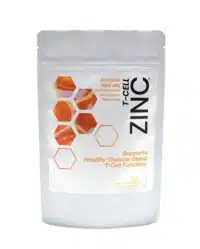
Resveratrol is a powerful antioxidant that has gained significant attention in recent years for its potential health benefits. This compound is found in the skin of grapes, as well as in other plants such as peanuts and berries. However, it is most commonly associated with red wine, as it is abundant in the skin of red grapes. The journey of resveratrol from being simply a component in grapes to becoming one of the best supplement choices for overall wellness is a fascinating one.
Scientists first became interested in resveratrol in the 1990s when they discovered that it could help protect the heart by reducing inflammation and preventing blood clots. Subsequent research revealed that resveratrol also has anti-cancer properties, as it can inhibit the growth of cancer cells and induce their death. This sparked a wave of interest in resveratrol and its potential health benefits, leading to numerous studies investigating its effects on various conditions.
One of the key factors that have contributed to resveratrol's popularity as a supplement is its ability to mimic the effects of calorie restriction. Calorie restriction has been shown to increase lifespan and improve overall health in various organisms, including mice and monkeys. Resveratrol appears to activate the same genetic pathways as calorie restriction, leading to similar health benefits without the need to drastically restrict food intake.
Another reason for resveratrol's popularity is its strong anti-inflammatory properties. Chronic inflammation is a common factor in many chronic diseases, including heart disease, diabetes, and cancer. By reducing inflammation in the body, resveratrol may help lower the risk of developing these conditions and improve overall health.
Resveratrol's ability to protect the brain has also been a focus of research in recent years. Studies have shown that resveratrol can help protect the brain from age-related decline and neurodegenerative diseases such as Alzheimer's and Parkinson's. It does this by reducing inflammation, protecting neurons from damage, and improving blood flow to the brain.
In addition to its antioxidant and anti-inflammatory properties, resveratrol also has metabolic benefits. It can improve insulin sensitivity, regulate blood sugar levels, and promote healthy weight management. These effects make resveratrol a promising supplement for individuals looking to improve their metabolic health and reduce the risk of developing type 2 diabetes and obesity.
While resveratrol is naturally found in grapes and red wine, the amounts consumed through diet are relatively low. This has led many people to turn to resveratrol supplements to reap its potential health benefits. Resveratrol supplements are available in various forms, including capsules, powders, and liquids, making it easy for individuals to incorporate this powerful antioxidant into their daily routine.
When choosing a resveratrol supplement, it is important to look for a high-quality product from a reputable manufacturer. The purity and potency of the supplement can vary between brands, so it is essential to do your research and select a supplement that has been tested for quality and safety.
It is also important to note that while resveratrol shows great promise in improving overall health and wellness, it is not a magic bullet. A healthy diet, regular exercise, and other lifestyle factors play a crucial role in maintaining good health. Resveratrol should be viewed as a supplement to a healthy lifestyle, rather than a replacement for it.
In conclusion, the journey of resveratrol from grapes to wellness has been a remarkable one. This powerful antioxidant has shown great potential in improving heart health, reducing inflammation, protecting the brain, and promoting metabolic health. As more research is conducted on resveratrol, even more health benefits will likely be discovered. For now, resveratrol stands as one of the best supplement choices for individuals looking to support their overall health and well-being.
